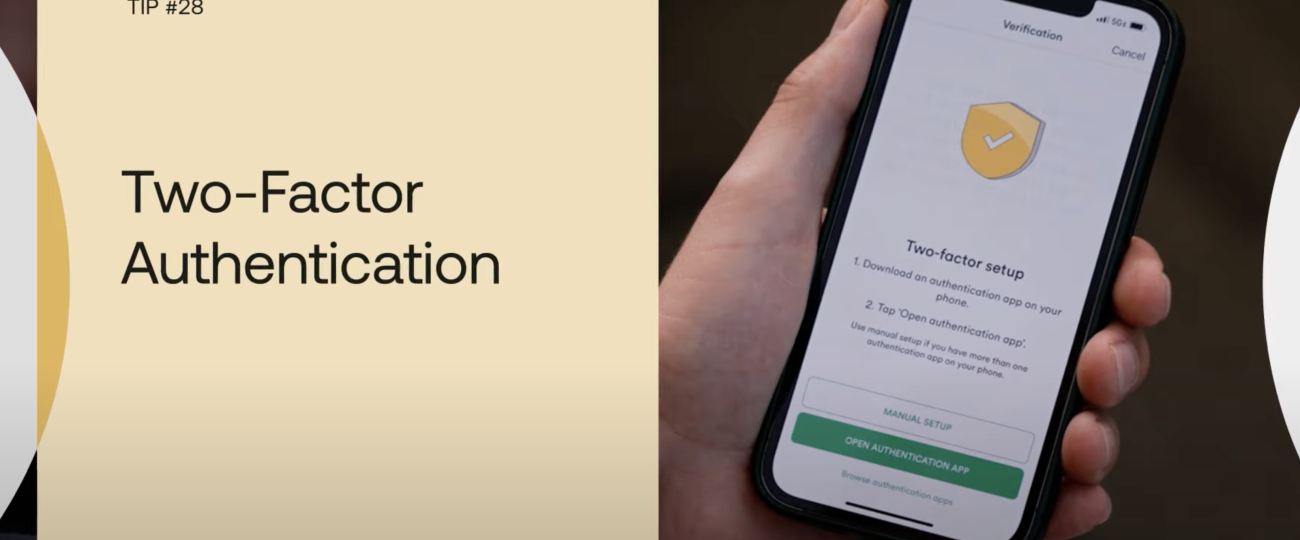October is Cybersecurity Awareness Month, but every month is a good time to make sure you’re being as safe as possible online and your information is protected from hackers.
In today’s digital world, you have likely been the victim of cybercrime yourself or know someone who has. According to the Federal Bureau of Investigation’s 2022 Internet Crime Report, there were 800,944 reported cybersecurity complaints in 2022, a 5 percent decrease from 2021. Although the number of complaints has decreased, the potential loss from these complaints has grown year over year by almost 4 billion dollars.
Whether you consider yourself tech-savvy or a novice, Vivint is here to help you stay safe online. Joe Albaugh is Vivint’s chief security officer, and we asked him some pressing questions about cybersecurity such as, “What is the dark web?” and, “How can you protect your Vivint account?”

What is the dark web? Is there a way to check to see if personal information has been leaked there?
The dark web, also known as the darknet, is an encrypted portion of the internet that is not indexed by search engines. It is made up of a series of websites that are hidden from the public. This means they are not accessible through traditional search engines. A special browser is needed to access it. While it is a tool that cybercriminals utilize, there are legal exchanges and business use cases for the darknet.
As a consumer, you should use a credit monitoring service. Most banking and credit card companies offer this for free. Most of those services offer free dark web monitoring and provide you with a notification of whether any of your information has been part of a data breach and leaked on the darknet. It’s safe to assume that if your information was part of a data breach, then it will likely end up on the dark web.
What can Vivint customers do to protect their smart home and account from cyber criminals?
Basic cyber hygiene plays a huge part in protecting yourself. Here are five steps households can take to better protect themselves against cyber-attacks:
Obtain and use a password manager
Using a password manager will make it less likely that your passwords will be breached. In the case that they are, it will be less likely that it affects more than one application. The proper utilization of a password manager will ensure that you have strong passwords and that they are unique for each application. It’s essential that you use unique passwords for your critical systems (Vivint app, banking app, email accounts, etc.).
Use passcodes
Always apply a passcode to your mobile device and use biometrics. Most phones allow you to customize your passcode from four digits. At minimum, use six-digit codes. Do not forget to add your Vivint passcode to your password manager.
Secure your wireless router
An insecure router poses the risk that individuals can access information flowing from your home internet to your computer, phone, or IoT (Internet of Things) devices. All wireless devices using this router are vulnerable if your router is not protected.
You can secure your router by changing the name of your router and the preset password assigned by the manufacturer.
Install firewalls and security software on all devices
Firewalls are an extra and necessary layer of protection. They help keep hackers from using your device, which otherwise could result in your personal information being stolen. They also watch for attempts to access your systems while blocking communications with sources you do not permit. You should be aware that you can download firewall and virtual private network (VPN) software for mobile devices.
Back up all household data
Protect your valuable personal information and photos by making secure (encrypted) electronic copies in case an account is hacked or compromised.



